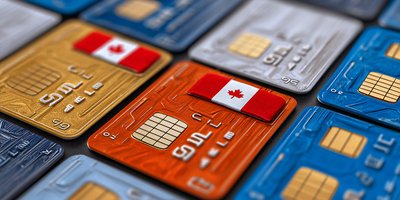
SIM Cards in Peru: Plans, Coverage & Buying Guide
Understand Peru's mobile networks, where to buy prepaid SIM cards and which data plans offer the best value. Stay connected during your trip with our tech tips guide.
Found 135 results for "Emergency Contacts Peru"
Our monitoring service tracks ticket cancellations and new releases 24/7. Get notified instantly when tickets for your preferred dates become available.
Traveling to Peru, especially to iconic destinations like Machu Picchu and Cusco, is an adventure filled with rich culture and breathtaking landscapes. However, being prepared for emergencies is crucial for a smooth trip.
First and foremost, familiarize yourself with the local emergency numbers. In Peru, the general emergency hotline is 116 for police and 105 for medical emergencies. It's advisable to store these numbers in your phone for quick access.
If you're hiking the Inca Trail or exploring remote areas, it’s wise to have contact information for local guides or agencies. Many offer 24/7 support and can assist in case of emergencies.
Additionally, understand the cultural context: Peruvians are generally warm and helpful. If you find yourself in a difficult situation, don’t hesitate to approach locals for assistance.
For those traveling to Machu Picchu, consider purchasing travel insurance that includes coverage for trekking and altitude sickness. The high altitude can be challenging, and it's better to be prepared.
In case of altitude sickness, know that symptoms can include headaches, dizziness, and nausea. If you experience these, descending to a lower altitude is essential, and seeking medical attention is advisable.
When it comes to theft, be aware of your surroundings, particularly in crowded areas. Keep your belongings secure and avoid displaying valuables.
In the unfortunate event of a lost passport or wallet, report it to the nearest police station immediately and contact your embassy for further assistance.
Lastly, it's beneficial to learn a few basic Spanish phrases. This helps in emergencies and enhances your overall experience in the country.
By staying informed and prepared, you can ensure your trip to Peru is memorable for all the right reasons. Embrace the beauty of the Sacred Valley and the mystique of Machu Picchu while keeping safety in mind!

Understand Peru's mobile networks, where to buy prepaid SIM cards and which data plans offer the best value. Stay connected during your trip with our tech tips guide.

Navigate social customs and tipping in Peru with guidelines for restaurants, hotels, tours and daily interactions.

With its flamboyant crest and raucous display, the Andean cock‑of‑the‑rock embodies the energy of Peru’s cloud forests. Explore this bird’s behaviour, habitat, myths and viewing tips.

Navigate Peru’s buses, trains and shared vans with advice on routes, booking tips and safety precautions.

Embark on a solo trip in Peru with confidence—learn safety strategies, social tips and how to stay connected on the go.

Choose the best SIM card for Peru, compare data packages and learn how to stay connected on the go.

Discover the options for sending packages and letters from Peru to the world. This guide compares courier services with the national postal system and offers tips on packaging, customs and delivery times.

Discover Peru’s wellness offerings, from Andean hot springs and yoga retreats to traditional healing ceremonies and mindful travel.

Explore the vibrant world of vegan and vegetarian food in Peru with naturally plant‑based dishes, adaptable classics, restaurant tips and travel advice.

Plan your Peru adventure with guidance on seasons, packing essentials, booking tickets and managing your budget.

Comprehensive guide to sustainable tourism in Peru. Eco-friendly practices, community-based tourism, conservation efforts, and responsible travel strategies.

Comprehensive safety guide for Machu Picchu visitors. Health precautions, security tips, emergency procedures, and practical advice for safe travel.
Set up instant alerts for ticket availability and never miss your chance to visit Machu Picchu.
Get Alerts